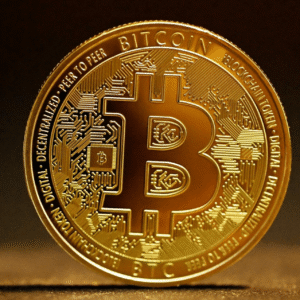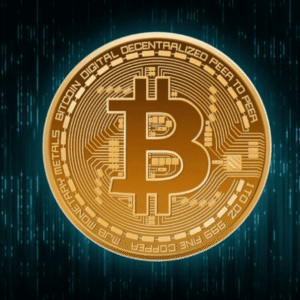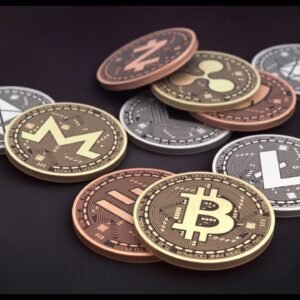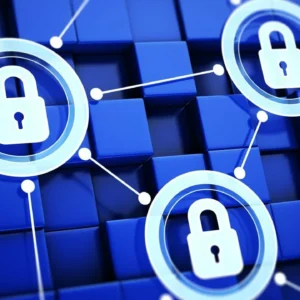Ultimate Beginner’s Guide to Blockchain: How Tokens, Wallets, and Gas Fees Really Work
Blockchain can feel like a buzzword you hear at every turn—from crypto bros in cafes to headlines on global finance sites. But what exactly is blockchain, and how do tokens, wallets, and gas fees fit into this intricate puzzle?
If you’re feeling a little lost in the crypto crowd, you’re not alone. This guide will walk you through the essential concepts in a clear, relatable, and engaging way. Whether you want to dip your toes into crypto trading, explore Web3, or simply understand the future of digital ownership, we’ve got you covered.
What Is Blockchain and Why Should You Care?
At its core, blockchain is a type of database—but unlike traditional databases, it stores data in a decentralized and immutable ledger. Think of it as a shared Google Doc that’s constantly being updated, but can’t be edited or deleted once information is added.
Each entry on a blockchain is called a “block,” and these blocks are linked in chronological order to form a “chain.”
Why It Matters:
- Decentralization: No single entity owns or controls the network.
- Transparency: Transactions are visible to everyone.
- Security: Once recorded, transactions are tamper-proof.
This technology underpins everything from cryptocurrencies like Bitcoin to NFTs and decentralized applications (dApps).
Understanding Tokens: Fungible vs. Non-Fungible
Tokens are the digital assets that live on a blockchain. They can represent anything from currency to ownership rights. Understanding the difference between fungible and non-fungible tokens is crucial.
Fungible Tokens:
These are interchangeable, just like money. One Bitcoin equals another Bitcoin. Same goes for Ethereum, Solana, and other cryptocurrencies.
Non-Fungible Tokens (NFTs):
Each one is unique. Think digital art, game items, or virtual real estate.
| Feature | Fungible Tokens (e.g., ETH) | Non-Fungible Tokens (e.g., NFTs) |
|---|---|---|
| Interchangeable | Yes | No |
| Value | Standardized | Unique |
| Example | Bitcoin, USDT | CryptoPunks, Bored Apes |
Tokens are often built on smart contract platforms like Ethereum and follow standards such as ERC-20 for fungible tokens and ERC-721 for NFTs.
How Crypto Wallets Actually Work
A crypto wallet doesn’t hold your tokens like a leather wallet holds cash. Instead, it stores your private keys—those long, alphanumeric passwords that give you access to your blockchain assets.
Types of Wallets:
- Hot Wallets (connected to the internet)
- Browser extensions like MetaMask
- Mobile apps like Trust Wallet
- Pros: Easy access
- Cons: Vulnerable to hacks
- Cold Wallets (offline storage)
- Hardware wallets like Ledger or Trezor
- Pros: Maximum security
- Cons: Less convenient
MetaMask is a popular choice for interacting with decentralized apps, managing Ethereum-based tokens, and even buying NFTs.
Your public key is like your email address—you can share it. Your private key? That’s your password. Lose it, and you lose your assets.
What Are Gas Fees and Why Do They Matter?
Every time you perform a transaction on a blockchain like Ethereum, you’re essentially asking the network to do some work for you—verify data, update the ledger, execute a contract. That work costs gas.
Gas Fee Breakdown:
- Base Fee: Minimum fee for processing your transaction.
- Tip: Optional extra you can pay to prioritize your transaction.
- Max Fee: The most you’re willing to spend.
According to Ethereum.org, gas is paid in “gwei,” a small denomination of ETH. If ETH is the dollar, then gwei is the penny.
Implications of Gas Fees:
- High network traffic = High gas fees
- Smart contract interactions (like buying an NFT) = More expensive
- Gas wars during NFT drops can push fees sky-high
The Interplay Between Tokens, Wallets, and Gas Fees
Understanding how tokens, wallets, and gas fees interact can help you navigate the crypto world smarter.
- You store tokens in a wallet.
- You send tokens using your private key.
- You pay gas fees for any on-chain activity.
Let’s say you buy an NFT using your MetaMask wallet. The transaction must:
- Interact with the smart contract (requires gas)
- Deduct ETH (a token) from your wallet
- Transfer ownership of the NFT to your address
Everything happens on the blockchain, and you can track it via a block explorer.
Real-Life Use Cases of Blockchain
The technology is more than just crypto speculation. Some practical applications include:
- Supply Chain Transparency: IBM Blockchain is used to track food safety and authenticity.
- Digital Identity: Projects like Civic provide secure identity verification.
- Gaming: Games like Axie Infinity use NFTs and tokens for in-game economies.
- Finance (DeFi): Decentralized lending, trading, and insurance without banks.
Challenges and Limitations
Despite its potential, blockchain has its hurdles:
- Scalability: Networks can get congested.
- Environmental Concerns: Proof-of-work chains like Bitcoin consume massive energy (though Ethereum has transitioned to proof-of-stake).
- User Experience: Wallets and transactions are still confusing for newcomers.
- Security: Smart contract bugs and phishing attacks are real risks.
Future Trends and What to Watch
As the ecosystem matures, expect these trends to gain momentum:
- Layer 2 Scaling: Solutions like Polygon reduce fees and speed up transactions.
- Cross-Chain Compatibility: Bridging assets across different blockchains.
- Mainstream Adoption: More companies accepting crypto, and governments exploring CBDCs.
- Better UX: Smoother onboarding for beginners.
Final Thoughts: Start Small, Learn Constantly
You don’t need to be a coder or financial wizard to get into blockchain. Start with a wallet, buy a small amount of ETH, explore a dApp, and learn as you go. Blockchain isn’t just the future of money—it’s the future of ownership, transparency, and decentralization.
By understanding how tokens, wallets, and gas fees work together, you’re better equipped to make smart decisions and stay ahead in the digital age.
Pro Tip: Follow trusted sources like CoinDesk, Decrypt, and Ethereum Foundation to stay updated on blockchain innovations.






